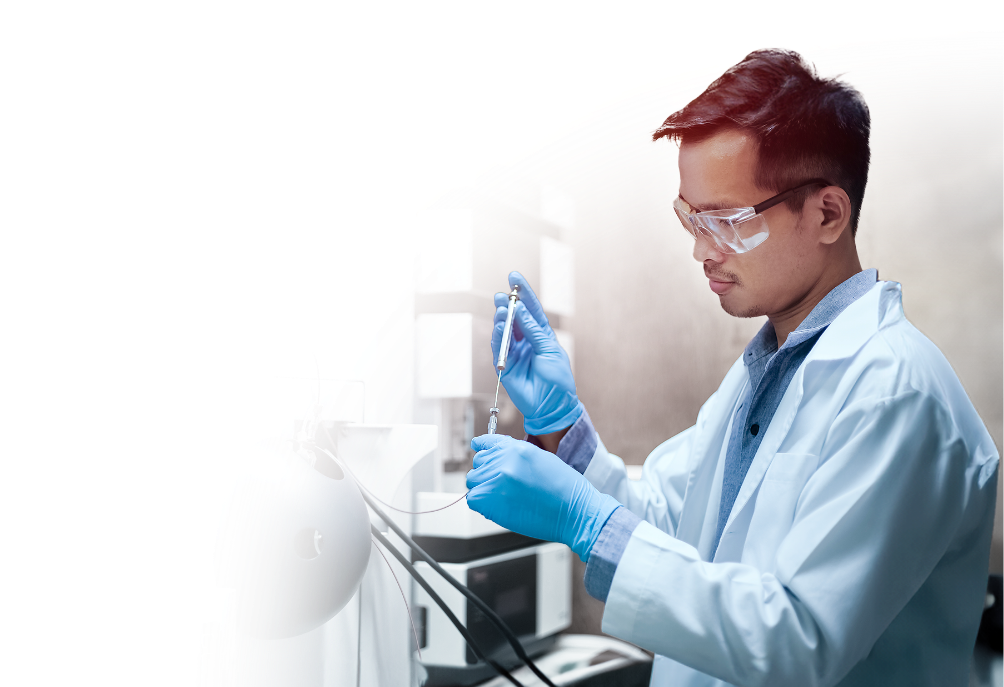Rapid, High-Quality Raw Material and Excipient Testing and Release
Ensuring the quality of excipients and raw materials is critical. Solvias provides comprehensive excipient and raw material testing and release services, helping you navigate the regulatory landscape and identify the best techniques and methods. ensuring your components meet cGMP regulations and specifications.

Unique combination of benefits
- Single source for all your pharmacopeial testing needs including raw material testing and excipient testing
- In-house expertise for developing product-specific release tests for non-standard materials
- Full monograph testing according to USP/Ph. Eur./JP for qualification and requalification
- Routine release testing with a fast 10-day turnaround and options to expedite
- Efficient qualification and release of primary packaging materials and ready-to-use components, raw materials, and excipients.
Comprehensive service solutions
From initial qualification to QC release, we ensure reliability, flexibility, and quality at every step. Our comprehensive services include:
Excipient & raw material testing capabilities:
- Identity testing: Confirm the identity of each excipient used in your formulation using methods like chromatography (e.g., HPLC), spectroscopy, and mass spectrometry. Confirm the identity of raw materials such as viral vectors or plasmids using PCR, sequencing, and chromatography.
- Purity testing: Assess the level of impurities in each excipient and raw material using chromatography, mass spectrometry, electrophoresis, and titration.
- Plasmid/vector identification: Ensure the genetic makeup of the raw material (vectors and plasmids) in gene therapy products through NGS or Sanger sequencing.
- Microbial limits testing: Verify that your excipients and raw materials are free from harmful microorganisms through microbial testing, bioburden determination, and endotoxin testing.
- Sterility testing: Confirm the absence of viable microorganisms in raw materials through sterility testing using culture-based or molecular methods.
- Virus testing: Ensure products are free from adventitious viruses using PCR and culture-based assays.
- Stability testing: Assess the stability of excipients under various conditions using accelerated and real-time stability studies.
Excipient & raw material testing capabilities:
- Identity testing: Confirm the identity of each excipient and raw material used in your formulation using methods like chromatography (e.g., HPLC), spectroscopy, and mass spectrometry.
- Purity testing: Assess the level of impurities in each excipient and raw material using chromatography (HPLC & GC), mass spectrometry, and titration.
- Particle size distribution: Use multiple light scattering methods to ensure the appropriate particle size of excipients and raw materials.
- Moisture content analysis: Use Karl Fischer titration to determine moisture content that can affect the stability and quality of the final product.
- Microbial limits testing: Verify that excipients and raw materials are free from harmful microorganisms through microbial testing, bioburden determination, and endotoxin testing.
- Sterility testing: Confirm the absence of viable microorganisms in raw materials through sterility testing using culture-based or molecular methods.
- Heavy metals testing: Test for the presence of heavy metals, which can be toxic, using methods such as inductively coupled plasma mass spectrometry (ICP-MS).
- Residual solvent testing: Detect and quantify any residual solvents used in the manufacturing of excipients through gas chromatography, liquid chromatography, and spectroscopy.
- Stability testing: Assess the stability of excipients under various conditions using accelerated and real-time stability studies.
- Compatibility testing: Assess the compatibility of excipients and raw materials with each other and with the active ingredient. This is important for formulation development.

Contact us for a complimentary consultation



